7 july 2015

President Sisi said that improving socio-economic conditions and settling the Palestinian issue will be a key factor in eliminating terrorism in the Middle East, as the Palestinian cause is one of the biggest motivations for youth joining militant groups.
Egyptian president Abdel Fattah al-Sisi said on Monday that settling the Palestinian issue will eliminate one of the most important factors terrorist groups relied on to attract new members. The president also noted that solving the Palestinian issue in accordance with international law and the Arab Peace Initiative would provide a new sense of security and stability in the region. He added that he hoped the international community would support the Palestinian wishes to establish an independent state, as well as encourage the Israeli leadership to move forward on the path of peace.
According to the Middle East News Agency, President Sisi met with a delegation from the American Jewish Committee and said that challenging the threat of terrorism requires a concerted effort by the international community. He stressed the importance of cooperation in achieving balance and security in the Middle East, and of eliminating the reasons exploited by extremist groups to attract young people. Sisi said that this would involve improving the economic and social conditions in the Middle East.
In relation to Egypt, president Sisi said that they must confront the threat of terrorism in the Sinai region, and he noted that the widening circle of violence and terrorism is not limited to the Middle East, but includes countries in Africa too.
Egyptian president Abdel Fattah al-Sisi said on Monday that settling the Palestinian issue will eliminate one of the most important factors terrorist groups relied on to attract new members. The president also noted that solving the Palestinian issue in accordance with international law and the Arab Peace Initiative would provide a new sense of security and stability in the region. He added that he hoped the international community would support the Palestinian wishes to establish an independent state, as well as encourage the Israeli leadership to move forward on the path of peace.
According to the Middle East News Agency, President Sisi met with a delegation from the American Jewish Committee and said that challenging the threat of terrorism requires a concerted effort by the international community. He stressed the importance of cooperation in achieving balance and security in the Middle East, and of eliminating the reasons exploited by extremist groups to attract young people. Sisi said that this would involve improving the economic and social conditions in the Middle East.
In relation to Egypt, president Sisi said that they must confront the threat of terrorism in the Sinai region, and he noted that the widening circle of violence and terrorism is not limited to the Middle East, but includes countries in Africa too.
5 july 2015
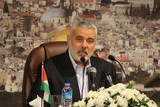
Deputy head of Hamas's political bureau Ismail Haneyya said that Israel had informed international parties that it would not wage a new war on the Gaza Strip.
Haneyya made his remarks after night prayers at Ashuhada'a Mosque in Nuseirat refugee camp.
The Hamas official, who did not name those parties, added that there were international parties, which supported the war on Gaza a year ago, decided recently to be open to Gaza.
He also highlighted the recent breakthrough in the relationship between his Movement and the Egyptian authorities, which contributed to changing the humanitarian situation in Gaza, affirming that there were ongoing contacts with the Egyptian side.
He expressed his optimism that the future would be promising for Gaza people.
Haneyya made his remarks after night prayers at Ashuhada'a Mosque in Nuseirat refugee camp.
The Hamas official, who did not name those parties, added that there were international parties, which supported the war on Gaza a year ago, decided recently to be open to Gaza.
He also highlighted the recent breakthrough in the relationship between his Movement and the Egyptian authorities, which contributed to changing the humanitarian situation in Gaza, affirming that there were ongoing contacts with the Egyptian side.
He expressed his optimism that the future would be promising for Gaza people.
4 july 2015
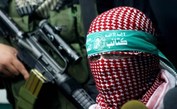
The Qassam Brigades, the armed wing of Hamas Movement, strongly denied the Israeli claims over its involvement in the terrorist attacks in Sinai Peninsula.
Abu Obaida, the spokesman of the Qassam Brigades, said on Saturday on his official Twitter page that these statements are sheer lies and are aimed at sowing discord and disagreement between Hamas and Egypt.
Abu Obaida stressed that the armed wing of Hamas is only fighting inside Palestine and that it doesn’t have any “foreign agenda”.
Abu Obaida, the spokesman of the Qassam Brigades, said on Saturday on his official Twitter page that these statements are sheer lies and are aimed at sowing discord and disagreement between Hamas and Egypt.
Abu Obaida stressed that the armed wing of Hamas is only fighting inside Palestine and that it doesn’t have any “foreign agenda”.
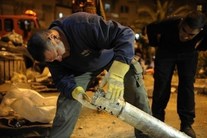
Egyptian military spokesman, Brig-Gen Mohammed Samir, denied Friday Israeli claims saying that a rocket was fired from Sinai into Eshkol in southern Israel.
Speaking to Anatolia news agency, the spokesman strongly denied Israeli claims, saying “What will we profit from hitting Israel with rockets?!”
The situation was "100% under control" in Sinai Peninsula, he added.
Media sources reported earlier Friday that two missiles landed in open areas in Israel's Eshkol regional council, near the Gaza border.
Israeli sources said that they had been likely fired from the Sinai and not from Gaza Strip.
Egyptian security sources told Reuters they were investigating the reports and said there was no immediate evidence a rocket was launched from Egyptian territory.
The Israeli military on Friday closed a southern highway, part of which runs along the Egyptian border, as “a safety precaution.”
Israeli authorities also closed the border crossings with Egypt following Wednesday’s deadly attacks against Egyptian army in Sinai Peninsula.
Speaking to Anatolia news agency, the spokesman strongly denied Israeli claims, saying “What will we profit from hitting Israel with rockets?!”
The situation was "100% under control" in Sinai Peninsula, he added.
Media sources reported earlier Friday that two missiles landed in open areas in Israel's Eshkol regional council, near the Gaza border.
Israeli sources said that they had been likely fired from the Sinai and not from Gaza Strip.
Egyptian security sources told Reuters they were investigating the reports and said there was no immediate evidence a rocket was launched from Egyptian territory.
The Israeli military on Friday closed a southern highway, part of which runs along the Egyptian border, as “a safety precaution.”
Israeli authorities also closed the border crossings with Egypt following Wednesday’s deadly attacks against Egyptian army in Sinai Peninsula.
3 july 2015
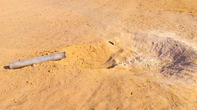
Sinai Province, Islamic State's Egypt affiliate, claims responsibility for Grad, while Egyptian military denies any rockets fired from the peninsula.
A rocket fired at southern Israel landed on Friday afternoon in an open area at the Eshkol Regional Council, close to the Israeli-Egyptian border. No one was hurt and no damage was caused.
Islamic State's Egypt affiliate, Sinai Province, said in a statement posted on Twitter by supporters that it had launched three Grad rockets towards "occupied Palestine".
The Islamic State-affiliated Salafist organization in Gaza, the Sheikh Omar Hadid Brigade, initially claimed responsibility over the firing of the rocket, but later said the announcement was a result of miscommunication.
It was possible the launch was linked to the fighting in Sinai, a military source told Reuters.
Egyptian military and security officials in Sinai denied any rockets were fired from the restive peninsula.
The rocket fire was preceeded with a code red siren shortly before 4:30 pm in Avshalom, Bnei Netsarim, Dekel, Yevul, Yated, Neve, Pri Gan, Sdei Avraham, Shlomit and Talmei Yosef - all communities near the Israel-Egypt border.
The rocket fire comes after two days of violent fighting between the Egyptian army and Islamic State-linked jihadists in Sinai.
After a combined assault launched by the Islamic State early Wednesday morning in Sinai, the IDF increased its presence on the Egyptian border. As part of the new raised level of alert, Highway 12 in southern Israel was closed to civilians since 5 am Friday morning.
The IDF said the "highway closing was done temporarily in line with the situation assessments, out of security considerations and the obligation to protect the citizens of Israel."
On Wednesday, jihadist terrorists affiliated with the Islamic State attacked at least 10 posts of the Egyptian army in Sinai and other targets in the peninsula. The jihadists also launched a series of terrorist bombings, using advanced weapons with which they reportedly killed some 70 Egyptian security forces.
Egypt called for aerial assistance, and Cairo claims its fighter jets killed at least 100 terrorists. Meanwhile, Cairo claimed only 17 of its soldiers were killed in the terror attacks.
Rocket fired from Sinai by ISIS-affiliated group lands in Eshkol
The rocket that fell near the Sinai border
Salafist group in Gaza claims responsibility for rocket fire, but military source says rocket came from Sinai.
A rocket fired at southern Israel landed on Friday afternoon in an open area at the Eshkol Regional Council, close to the Israeli-Egyptian border. No one was hurt and no damage was caused.
Because of the proximity to the border, the IDF believes the rocket was fired from the Sinai Peninsula and not from the Gaza Strip. The Islamic State-affiliated Salafist organization in Gaza, the Sheikh Omar Hadid Brigade, claimed responsibility over the firing of the Sinai-made rocket.
"Yes, the rocket was fired from Sinai," a military source told Reuters.
It was possible the launch was linked to the fighting in Sinai, the military source said.
Egyptian military and security officials in Sinai denied any rockets were fired from the restive peninsula.
The rocket fire was preceeded with a code red siren shortly before 4:30 pm in Avshalom, Bnei Netsarim, Dekel, Yevul, Yated, Neve, Pri Gan, Sdei Avraham, Shlomit and Talmei Yosef - all communities near the Israel-Egypt border.
The rocket fire comes after two days of violent fighting between the Egyptian army and Islamic State-linked jihadists in Sinai.
After a combined assault launched by the Islamic State early Wednesday morning in Sinai, the IDF increased its presence on the Egyptian border. As part of the new raised level of alert, Highway 12 in southern Israel was closed to civilians since 5 am Friday morning.
The IDF said the "highway closing was done temporarily in line with the situation assessments, out of security considerations and the obligation to protect the citizens of Israel."
On Wednesday, jihadist terrorists affiliated with the Islamic State attacked at least 10 posts of the Egyptian army in Sinai and other targets in the peninsula. The jihadists also launched a series of terrorist bombings, using advanced weapons with which they reportedly killed some 70 Egyptian security forces.
Egypt called for aerial assistance, and Cairo claims its fighter jets killed at least 100 terrorists. Meanwhile, Cairo claimed only 17 of its soldiers were killed in the terror attacks.
A rocket fired at southern Israel landed on Friday afternoon in an open area at the Eshkol Regional Council, close to the Israeli-Egyptian border. No one was hurt and no damage was caused.
Islamic State's Egypt affiliate, Sinai Province, said in a statement posted on Twitter by supporters that it had launched three Grad rockets towards "occupied Palestine".
The Islamic State-affiliated Salafist organization in Gaza, the Sheikh Omar Hadid Brigade, initially claimed responsibility over the firing of the rocket, but later said the announcement was a result of miscommunication.
It was possible the launch was linked to the fighting in Sinai, a military source told Reuters.
Egyptian military and security officials in Sinai denied any rockets were fired from the restive peninsula.
The rocket fire was preceeded with a code red siren shortly before 4:30 pm in Avshalom, Bnei Netsarim, Dekel, Yevul, Yated, Neve, Pri Gan, Sdei Avraham, Shlomit and Talmei Yosef - all communities near the Israel-Egypt border.
The rocket fire comes after two days of violent fighting between the Egyptian army and Islamic State-linked jihadists in Sinai.
After a combined assault launched by the Islamic State early Wednesday morning in Sinai, the IDF increased its presence on the Egyptian border. As part of the new raised level of alert, Highway 12 in southern Israel was closed to civilians since 5 am Friday morning.
The IDF said the "highway closing was done temporarily in line with the situation assessments, out of security considerations and the obligation to protect the citizens of Israel."
On Wednesday, jihadist terrorists affiliated with the Islamic State attacked at least 10 posts of the Egyptian army in Sinai and other targets in the peninsula. The jihadists also launched a series of terrorist bombings, using advanced weapons with which they reportedly killed some 70 Egyptian security forces.
Egypt called for aerial assistance, and Cairo claims its fighter jets killed at least 100 terrorists. Meanwhile, Cairo claimed only 17 of its soldiers were killed in the terror attacks.
Rocket fired from Sinai by ISIS-affiliated group lands in Eshkol
The rocket that fell near the Sinai border
Salafist group in Gaza claims responsibility for rocket fire, but military source says rocket came from Sinai.
A rocket fired at southern Israel landed on Friday afternoon in an open area at the Eshkol Regional Council, close to the Israeli-Egyptian border. No one was hurt and no damage was caused.
Because of the proximity to the border, the IDF believes the rocket was fired from the Sinai Peninsula and not from the Gaza Strip. The Islamic State-affiliated Salafist organization in Gaza, the Sheikh Omar Hadid Brigade, claimed responsibility over the firing of the Sinai-made rocket.
"Yes, the rocket was fired from Sinai," a military source told Reuters.
It was possible the launch was linked to the fighting in Sinai, the military source said.
Egyptian military and security officials in Sinai denied any rockets were fired from the restive peninsula.
The rocket fire was preceeded with a code red siren shortly before 4:30 pm in Avshalom, Bnei Netsarim, Dekel, Yevul, Yated, Neve, Pri Gan, Sdei Avraham, Shlomit and Talmei Yosef - all communities near the Israel-Egypt border.
The rocket fire comes after two days of violent fighting between the Egyptian army and Islamic State-linked jihadists in Sinai.
After a combined assault launched by the Islamic State early Wednesday morning in Sinai, the IDF increased its presence on the Egyptian border. As part of the new raised level of alert, Highway 12 in southern Israel was closed to civilians since 5 am Friday morning.
The IDF said the "highway closing was done temporarily in line with the situation assessments, out of security considerations and the obligation to protect the citizens of Israel."
On Wednesday, jihadist terrorists affiliated with the Islamic State attacked at least 10 posts of the Egyptian army in Sinai and other targets in the peninsula. The jihadists also launched a series of terrorist bombings, using advanced weapons with which they reportedly killed some 70 Egyptian security forces.
Egypt called for aerial assistance, and Cairo claims its fighter jets killed at least 100 terrorists. Meanwhile, Cairo claimed only 17 of its soldiers were killed in the terror attacks.
30 june 2015
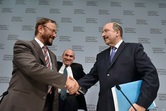
File photo of General Dore Gold (R)
Israeli Foreign Ministry Director-General Dore Gold's visit to Cairo on Sunday reflects the strength of Egyptian-Israeli relations and represents another step forward towards further strengthening the two sides' mutual political relations, local media reported.
Israeli newspaper Maariv quoted Gold as saying that Egypt and Israel are "speaking the same language" regarding regional issues.
He mentioned the Iranian nuclear threat, the rise of "radical Islam", ISIS and Hamas as the biggest challenges that the two countries are facing.
Maariv's report noted that Egypt and Israel look at regional issues from the same perspective.
"In Israel [we] speak Hebrew, in Egypt [you] speak Arabic, but when discussing regional challenges, both countries speak the same language," Maariv reported Gold saying.
According to an Israeli source, Gold told his Egyptian counterpart Osama Al-Majdoub that it is important to develop common policies towards regional issues. The source refused to disclose the broad outlines of such policies.
Egypt is not expected to change its strict anti-Hamas stance, and that the gestures of goodwill made by the Egyptian regime towards Hamas in recent days are tactical, not strategic, Maariv added.
Israeli Foreign Ministry Director-General Dore Gold's visit to Cairo on Sunday reflects the strength of Egyptian-Israeli relations and represents another step forward towards further strengthening the two sides' mutual political relations, local media reported.
Israeli newspaper Maariv quoted Gold as saying that Egypt and Israel are "speaking the same language" regarding regional issues.
He mentioned the Iranian nuclear threat, the rise of "radical Islam", ISIS and Hamas as the biggest challenges that the two countries are facing.
Maariv's report noted that Egypt and Israel look at regional issues from the same perspective.
"In Israel [we] speak Hebrew, in Egypt [you] speak Arabic, but when discussing regional challenges, both countries speak the same language," Maariv reported Gold saying.
According to an Israeli source, Gold told his Egyptian counterpart Osama Al-Majdoub that it is important to develop common policies towards regional issues. The source refused to disclose the broad outlines of such policies.
Egypt is not expected to change its strict anti-Hamas stance, and that the gestures of goodwill made by the Egyptian regime towards Hamas in recent days are tactical, not strategic, Maariv added.
23 june 2015

File photo of an Gaza tunnel
Security sources confirmed on Monday that the Egyptian authorities have started to dig a new tunnel in the Sinai Peninsula along the border with the Gaza Strip, Alamatonline.com has reported.
The tunnel is intended to help the Egyptians to monitor the smuggling tunnels between Egypt and Gaza. Although these tunnels are used to take essential goods into the besieged territory - and have been described as "Gaza's lifeline" - the government in Cairo claims that they are a threat to its security.
The tunnel is expected to be dug 2km from the actual border; it will be 20m underground and 10m wide.
According to Alamatonline.com, local Egyptian residents are exasperated by the construction. They have complained that preliminary work has already destroyed their farms, which are their main source of income.
Security sources confirmed on Monday that the Egyptian authorities have started to dig a new tunnel in the Sinai Peninsula along the border with the Gaza Strip, Alamatonline.com has reported.
The tunnel is intended to help the Egyptians to monitor the smuggling tunnels between Egypt and Gaza. Although these tunnels are used to take essential goods into the besieged territory - and have been described as "Gaza's lifeline" - the government in Cairo claims that they are a threat to its security.
The tunnel is expected to be dug 2km from the actual border; it will be 20m underground and 10m wide.
According to Alamatonline.com, local Egyptian residents are exasperated by the construction. They have complained that preliminary work has already destroyed their farms, which are their main source of income.
8 june 2015
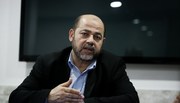
Mousa Abu Marzouk, a senior leader of the Palestinian resistance movement Hamas, has urged the Egyptian judiciary to cancel the ban on the military wing of the movement, al-Qassam Brigades.
Abu Marzouk praised the Egyptian court's decision to lift the ban on Hamas and told the Anadolu Agency that the decision will open a new page in relations between the two sides and would allow Egypt to renew its role in the Palestinian cause.
"We demand the abolition of the resolution of Egypt to ban al-Qassam Brigades," he added.
Abu Marzouk called on Egypt to resume its efforts in the field of mediating Palestinian reconciliation, in addition to its role in the maintenance of the ceasefire between the Palestinian factions and Israel.
"There is no doubt that Egypt at this stage, and in all stages, has a part to play," Abu Marzouk told Anadolu Agency.
The Egyptian high court ruled last January for the prohibition of the Ezz Eddin al-Qassam Brigades, and listed the organization as a terrorist group. The same court lifted the ban on Hamas last Saturday.
Regarding the Israeli airstrikes on Gaza Strip, a few days ago, Abu Marzouk said “the Israeli aggression has no justifications and definitely it should be replied by a similar aggression in order to protect the Palestinian people.”
“Hamas has so far been abiding by the ceasefire agreement with high responsibility. The situation, however, cannot remain as it is in light of the Israeli unjustified repeated aggressions. Israel has to recognize that,” he underlined.
Abu Marzouk praised the Egyptian court's decision to lift the ban on Hamas and told the Anadolu Agency that the decision will open a new page in relations between the two sides and would allow Egypt to renew its role in the Palestinian cause.
"We demand the abolition of the resolution of Egypt to ban al-Qassam Brigades," he added.
Abu Marzouk called on Egypt to resume its efforts in the field of mediating Palestinian reconciliation, in addition to its role in the maintenance of the ceasefire between the Palestinian factions and Israel.
"There is no doubt that Egypt at this stage, and in all stages, has a part to play," Abu Marzouk told Anadolu Agency.
The Egyptian high court ruled last January for the prohibition of the Ezz Eddin al-Qassam Brigades, and listed the organization as a terrorist group. The same court lifted the ban on Hamas last Saturday.
Regarding the Israeli airstrikes on Gaza Strip, a few days ago, Abu Marzouk said “the Israeli aggression has no justifications and definitely it should be replied by a similar aggression in order to protect the Palestinian people.”
“Hamas has so far been abiding by the ceasefire agreement with high responsibility. The situation, however, cannot remain as it is in light of the Israeli unjustified repeated aggressions. Israel has to recognize that,” he underlined.
7 june 2015
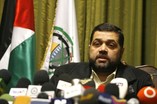
Senior Hamas leader Osama Hamdan hailed the decision by an Egyptian appeals court on Saturday to cancel a ruling blacklisting the Palestinian resistance group as terrorist.
Hamdan said in an interview aired on al-Aqsa TV Channel that Hamas has recently met with a senior Egyptian official and both sides agreed on the need to prop up bilateral ties.
He branded the Egyptian court ruling overturning an earlier decision that blacklisted Hamas as a terror organization a step in the right direction.
Hamdan expressed hope that the decision would herald a pro-Hamas standpoint on the part of Egypt.
The Cairo court of appeals for urgent matters on Saturday decided to take off Hamas from terror blacklists citing a lack of jurisdiction as the reason for annulling the earlier court's ruling.
Egypt has played a major role as a broker party between Hamas and the Israeli occupation in the wake of last summer’s Israeli offensive on the blockaded Gaza Strip.
Hamdan said in an interview aired on al-Aqsa TV Channel that Hamas has recently met with a senior Egyptian official and both sides agreed on the need to prop up bilateral ties.
He branded the Egyptian court ruling overturning an earlier decision that blacklisted Hamas as a terror organization a step in the right direction.
Hamdan expressed hope that the decision would herald a pro-Hamas standpoint on the part of Egypt.
The Cairo court of appeals for urgent matters on Saturday decided to take off Hamas from terror blacklists citing a lack of jurisdiction as the reason for annulling the earlier court's ruling.
Egypt has played a major role as a broker party between Hamas and the Israeli occupation in the wake of last summer’s Israeli offensive on the blockaded Gaza Strip.
6 june 2015
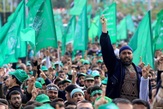
An Egyptian court on Saturday annulled a lower court's decision to consider Hamas a terrorist organisation. The final verdict was issued by an appellate court based on a petition by the Egyptian government.
"We welcome the verdict and consider it an important and positive step," Hamas spokesman Ismail Radwan told Anadolu Agency.
On Feb. 28, a lower Egyptian court had designated Hamas as a "terrorist" organisation over claims that the group had carried out terrorist attacks in Egypt through tunnels linking the Sinai Peninsula to the Gaza Strip.
"We welcome the verdict and consider it an important and positive step," Hamas spokesman Ismail Radwan told Anadolu Agency.
On Feb. 28, a lower Egyptian court had designated Hamas as a "terrorist" organisation over claims that the group had carried out terrorist attacks in Egypt through tunnels linking the Sinai Peninsula to the Gaza Strip.
29 may 2015

Yousra Omar Al Najjar, an elderly woman of 77, died on Wednesday evening, in Gaza's European hospital, after a case of fatigue she sustained during her way back to the region via the Rafah crossing.
The authority of crossings and borders in the Gaza Strip issued a statement explaining that Al Najjar was taken from the Egyptian hall to Al Arish hospital, accompanied by Egyptian army vehicles, where she received treatment before being transferred to the European hospital after entering Gaza.
Al Ray reports that, according to a relative of the elderly woman, while she was waiting on the Egyptian she fainted due to a "sun stroke" caused by the high temperatures. The relative added that he tried to coordinate to facilitate her entry to Gaza, and that she was then transferred to the Palestinian side of the crossing, then to the European Hospital, where the doctor told them that she passed away "since a period of time".
Earlier, on Tuesday, Egyptian authorities opened the Rafah crossing on Tuesday, for the first time in nearly 80 days, to allow stranded Palestinians to return to the Gaza Strip. But, it did not allow traffic in the other direction, leaving thousands of Gazans, some of whom need to travel for medical treatment, stuck inside the Gaza Strip.
Since the Egyptian army ousted Islamist president Mohamed Morsi in 2013, Cairo has largely kept Rafah, the main gateway to the Gaza Strip, closed.
It occasionally opened the crossing to allow passengers with foreign passports, as well as students and patients to travel. Israel also has strict limitations on Palestinian travel through its border with Gaza.
The authority of crossings and borders in the Gaza Strip issued a statement explaining that Al Najjar was taken from the Egyptian hall to Al Arish hospital, accompanied by Egyptian army vehicles, where she received treatment before being transferred to the European hospital after entering Gaza.
Al Ray reports that, according to a relative of the elderly woman, while she was waiting on the Egyptian she fainted due to a "sun stroke" caused by the high temperatures. The relative added that he tried to coordinate to facilitate her entry to Gaza, and that she was then transferred to the Palestinian side of the crossing, then to the European Hospital, where the doctor told them that she passed away "since a period of time".
Earlier, on Tuesday, Egyptian authorities opened the Rafah crossing on Tuesday, for the first time in nearly 80 days, to allow stranded Palestinians to return to the Gaza Strip. But, it did not allow traffic in the other direction, leaving thousands of Gazans, some of whom need to travel for medical treatment, stuck inside the Gaza Strip.
Since the Egyptian army ousted Islamist president Mohamed Morsi in 2013, Cairo has largely kept Rafah, the main gateway to the Gaza Strip, closed.
It occasionally opened the crossing to allow passengers with foreign passports, as well as students and patients to travel. Israel also has strict limitations on Palestinian travel through its border with Gaza.
28 may 2015

Russian S-300 missile system
Israeli Air Force chief yesterday played down concerns voiced by some of his colleagues over the possibility of Egypt acquiring sophisticated Russian-made air defences. Russia's TASS news agency in March reported that Egypt will receive the Antey- 2500 missile system, a variant of the S-300 missile system at a value of more than $1 billion.
Egypt and Russia have never officially confirmed the news.
The S-300 missile system is seen to represent a challenge for the Israeli Air Force.
Russia is also in talks to sell the system to Iran, which has long threatened to attack Israeli nuclear facilities if diplomatic efforts failed to allow Tehran acquire a nuclear bomb.
Air Force Chief Major-General Amir Eshel told reporters: "It [Iran possessing the S-300) is a very big challenge. It is a strategic problem long before it is an operational problem."
"Someone who has an S-300 feels protected and can do more aggressive things because he feels protected," he said.
But Eshel played down any suggestions Israel would be concerned about an Egyptian S-300, saying: "Are you kidding me? We're at peace with them."
Israel and Egypt have stepped up security cooperation against Islamist militants in recent years.
A senior Israeli officer who asked not to be named said earlier this month: "We're all for Egypt getting anything it needs from the United States for counterterrorism."
"The problem is that the S-300 has nothing to do with counterterrorism," he added.
A US official said he had heard "muted" doubts over the S-300 deal, but that the Israelis seemed to have resigned to it.
"They have a problem because here they are telling us we should give [Egypt] all this kit for Sinai, and yet they have problems with certain other weapons systems. They're aware that it's a mixed message, and they don't want to risk that," the official told Reuters on condition of anonymity.
Egypt depends on extensive US military aid, which can potentially be influenced by Israel's own lobbying in Washington.
Israeli Air Force chief yesterday played down concerns voiced by some of his colleagues over the possibility of Egypt acquiring sophisticated Russian-made air defences. Russia's TASS news agency in March reported that Egypt will receive the Antey- 2500 missile system, a variant of the S-300 missile system at a value of more than $1 billion.
Egypt and Russia have never officially confirmed the news.
The S-300 missile system is seen to represent a challenge for the Israeli Air Force.
Russia is also in talks to sell the system to Iran, which has long threatened to attack Israeli nuclear facilities if diplomatic efforts failed to allow Tehran acquire a nuclear bomb.
Air Force Chief Major-General Amir Eshel told reporters: "It [Iran possessing the S-300) is a very big challenge. It is a strategic problem long before it is an operational problem."
"Someone who has an S-300 feels protected and can do more aggressive things because he feels protected," he said.
But Eshel played down any suggestions Israel would be concerned about an Egyptian S-300, saying: "Are you kidding me? We're at peace with them."
Israel and Egypt have stepped up security cooperation against Islamist militants in recent years.
A senior Israeli officer who asked not to be named said earlier this month: "We're all for Egypt getting anything it needs from the United States for counterterrorism."
"The problem is that the S-300 has nothing to do with counterterrorism," he added.
A US official said he had heard "muted" doubts over the S-300 deal, but that the Israelis seemed to have resigned to it.
"They have a problem because here they are telling us we should give [Egypt] all this kit for Sinai, and yet they have problems with certain other weapons systems. They're aware that it's a mixed message, and they don't want to risk that," the official told Reuters on condition of anonymity.
Egypt depends on extensive US military aid, which can potentially be influenced by Israel's own lobbying in Washington.
26 may 2015
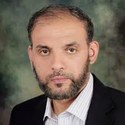
Palestinian resistance faction Hamas slammed claims by an Egyptian court that it lacked jurisdiction to look into a lawsuit calling for blacklisting the Israeli occupation as a terrorist entity.
"The Israeli occupation is an icon of terror in the region. Such a view does not need endorsement by an Egyptian court – or anyone else – to state it as a fact," Hamas spokesman Hosam Badran said in a statement.
"Israel's crimes against our people are committed before all media outlets and before the entire world,” he said. “Israel’s terrorism against Egyptians is as clear as daylight.”
Badran said that the Monday ruling by the same court that branded Hamas a terrorist organization “runs contrary to facts and realities and above all runs contrary to the nation's conscience.”
Earlier Monday, the Cairo Court for Urgent Matters ruled that it lacked jurisdiction to examine a case calling for the designation of the Israeli occupation as a terror entity.
In February, the same court designated Hamas itself as a "terrorist" organization on counterfeit allegations, spurring rage across and outside the region.
Israeli terrorism needs neither evidence nor a court judgement, says Hamas
Hamas has criticised the decision by the Cairo Court for Urgent Matters to refrain from labelling Israel as a "terrorist entity". The judgement contradicts all of the facts and evidence, said spokesman Husam Badran.
In a written statement, reported Quds Press, Badran said that Israel is the symbol of terrorism in the region, noting that there is no need for evidence or a decision by an Egyptian court to prove this.
"The crimes of the occupation against our people are carried out in front of the media and are witnessed by the whole world," he said. "Its terrorism against the Arab Republic of Egypt is known, including the killing of Egyptian prisoners in the past, and espionage and sabotage operations at present."
Badran compared the position taken by the Egyptian court towards Israel and that taken when it declared Hamas to be a "terrorist organisation". This violates the conscience of the nation and goes against its convictions, he insisted.
The court decided on Monday that it is not within its jurisdiction to consider a lawsuit demanding that Israel be considered a terrorist entity.
"The Israeli occupation is an icon of terror in the region. Such a view does not need endorsement by an Egyptian court – or anyone else – to state it as a fact," Hamas spokesman Hosam Badran said in a statement.
"Israel's crimes against our people are committed before all media outlets and before the entire world,” he said. “Israel’s terrorism against Egyptians is as clear as daylight.”
Badran said that the Monday ruling by the same court that branded Hamas a terrorist organization “runs contrary to facts and realities and above all runs contrary to the nation's conscience.”
Earlier Monday, the Cairo Court for Urgent Matters ruled that it lacked jurisdiction to examine a case calling for the designation of the Israeli occupation as a terror entity.
In February, the same court designated Hamas itself as a "terrorist" organization on counterfeit allegations, spurring rage across and outside the region.
Israeli terrorism needs neither evidence nor a court judgement, says Hamas
Hamas has criticised the decision by the Cairo Court for Urgent Matters to refrain from labelling Israel as a "terrorist entity". The judgement contradicts all of the facts and evidence, said spokesman Husam Badran.
In a written statement, reported Quds Press, Badran said that Israel is the symbol of terrorism in the region, noting that there is no need for evidence or a decision by an Egyptian court to prove this.
"The crimes of the occupation against our people are carried out in front of the media and are witnessed by the whole world," he said. "Its terrorism against the Arab Republic of Egypt is known, including the killing of Egyptian prisoners in the past, and espionage and sabotage operations at present."
Badran compared the position taken by the Egyptian court towards Israel and that taken when it declared Hamas to be a "terrorist organisation". This violates the conscience of the nation and goes against its convictions, he insisted.
The court decided on Monday that it is not within its jurisdiction to consider a lawsuit demanding that Israel be considered a terrorist entity.
